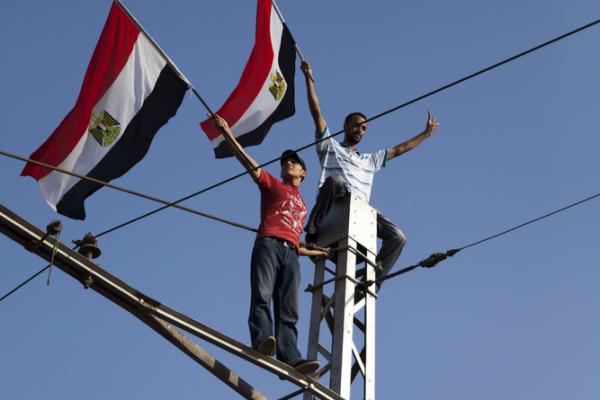Oct 3, 2013
After decades of polarization along religious lines, Christians and Muslims in Egypt are coming together to rally behind their flag.
The country is in the midst of a swell of nationalism that began during the revolution in 2011 and intensified when citizens took to the streets in June of this year to call for the removal of President Mohammed Morsi of the Muslim Brotherhood.
Egyptian flags adorn houses and buildings throughout the capital, and everything — from sandbags buttressing military blockades to pillars along the Nile Corniche — has been painted in the national colors of black, white, and red.
Read the Full Article

Already a subscriber? Login
